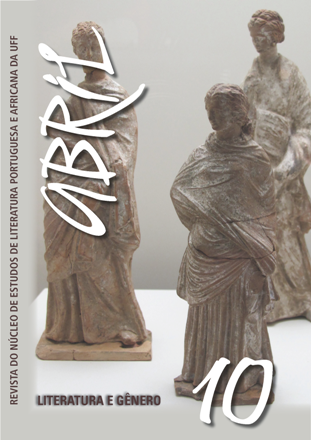For the poetics of the demarcation: “Ema” by Maria Teresa Horta
DOI:
https://doi.org/10.22409/abriluff.v5i10.29686Keywords:
demarcation, gender, Maria Teresa HortaAbstract
This study aims to analyze the functioning of gender in the discourse of Maria Teresa Horta’s novel Ema. Taking up the expression “the mark of the feminine” (gender) used in Portuguese grammar, I attempt to demonstrate how this mark becomes instituted in Ema as the site of a demarcation. As a first step, I analyze the “de-marking”, or unmarking, operation performed by the masculine upon the feminine. In fact, the masculine functions in the novel’s discourse as that which imprints its mark, opposing and suppressing the feminine. In the second part, I examine the strategies of demarcation deployed by the feminine to impose and legitimize its difference. Finally, I consider the ways in which the feminine operates the demarcation as a border or threshold that, while separating, also and primarily allows for the encounter and the movement of passage or transition.Downloads
Downloads
Published
Issue
Section
License
I authorize the journal Abril - NEPA/UFF to publish the paper of my authorship/responsibility that I now submit, in case it is accepted for online publication.
Moreover, I declare that this contribution is original, that it was not submitted to any other editor for publication, and I sign the present declaration attesting the truth of all its contents.
The copyright of the works published at the virtual space of the journal Abril - NEPA/UFF are automatically entitled to the journal. Their total or partial reproduction is conditioned to the authors' citations and publication data.

Abril is licensed under a Creative Commons - Attribution-NonCommercial 4.0 International (CC BY-NC 4.0).









